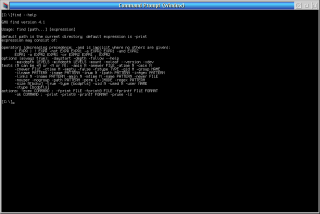Le GNU Find Utilities sono gli strumenti di base per la ricerca nel filesystem del sistema operativo GNU. Queste utility sono tipicamente usate insieme ad altri programmi per fornire capacità di ricerca potenti e modulari su file e directory, utilizzando insiemi di comandi specifici.
Gli strumenti disponibili sono:
- find: ricerca file in una gerarchia di directory
- locate: lista i file in un database che corrispondono ad un pattern
- updatedb: aggiorna un nome di file database
- xargs: costruisce ed esegue linee di comandi dallo standard input



Aggiungi un commento